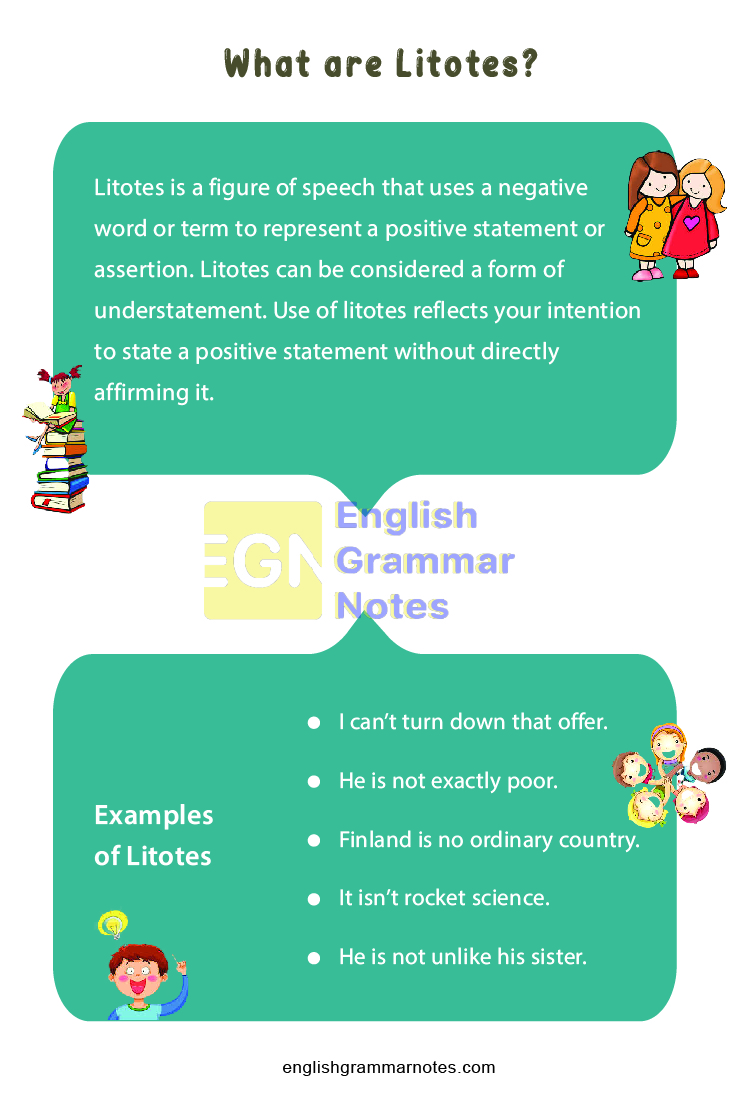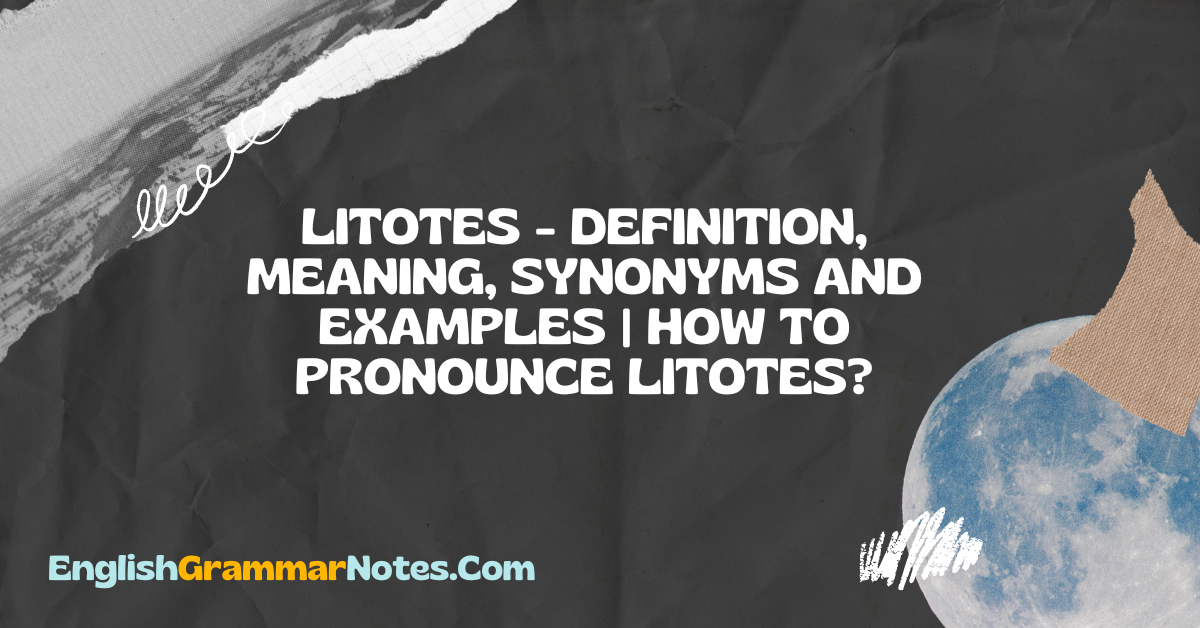Are you in search of techniques to improve your writing skills? The use of litotes will help you achieve the same. The word litotes has its roots in the Greek word litos, meaning “plain,” “small,” or “meager.” Be aware that litotes is not a plural word. Litotes is a common literary device used in speech, fiction, and nonfiction. Today let’s have a look at what litotes are, their function, common examples, etc.
- What are Litotes?
- Litotes Synonyms
- 10 Examples of Litotes
- Purpose of Litotes
- Litotes and Verbal Irony
- Meiosis and Litotes
- Understatement and Litotes
- Hyperbole and Litotes
- What are litotes?
- Give litotes examples?
- Distinguish between hyperbole and litotes?
- Are litotes and verbal irony the same?
What are Litotes?
Litotes is a figure of speech that uses a negative word or term to represent a positive statement or assertion. Litotes can be considered a form of understatement. Use of litotes reflects your intention to state a positive statement without directly affirming it.
Litotes Synonyms
Some of the common synonyms of litotes are underemphasis, underplaying, trivialization, reserve, subtlety, understatement, understatedness, and euphemism.

10 Examples of Litotes
As mentioned earlier, litotes help affirm a positive statement using negative words. Given below are some common examples of litotes that you use in everyday conversation
- I can’t turn down that offer.
- He is not exactly poor.
- His cooking is not terrible.
- Finland is no ordinary country.
- It isn’t rocket science.
- Your comments on her songs were less than tricky.
- The apple didn’t fall far from the tree.
- He is not unlike his sister.
- The weather is not unpleasant.
- His answer was hardly a whisper.
- Her decision is not the worst.
- The test came back not negative
- My feelings are not unhurt.
- He is hardly unattractive.
- That lesson is not hard.
- My car was not cheap.
- I won’t argue with the referee.
- Visiting family is not uncommon.
- The results are not inaccurate.
- That compliment is not unwelcome.
Litotes are commonly used as a rhetorical device as it prompts the listeners or readers to carefully listen to what is being said.
Purpose of Litotes
Litotes are used for various reasons. These include:
- Understanding litotes will improve the thinking skills of the reader.
- Litotes can be used to emphasize a positive concept or idea using negative words.
- The use of litotes will require the listener to think and consider a statement.
- Litotes can also be used as a means to save face
Litotes and Verbal Irony
Even though litotes is verbal irony, it is a specific kind of verbal irony. The irony is a type of contradiction and the readers can understand it easily. However, litotes will have a specific impact on the intended audience.
Meiosis and Litotes
Meiosis and Litotes are distinct devices. While meiosis has euphemistic undertones, litotes have an underlying ironic tone.
Understatement and Litotes
An understatement reduces the significance of an idea. However, litotes engage in expressing a positive or affirmative statement from a negative angle.
Hyperbole and Litotes
Hyperbole and litotes are contradictory terms. While hyperbole is an exaggeration, litotes is an understatement that has ironic undertones.
FAQs on Litotes
Litotes is a figure of speech that uses a negative word or term to represent a positive statement or assertion. Litotes can be considered a form of understatement.
Examples of litotes include: The weather is not unpleasant, his answer was hardly a whisper, her decision is not the worst.
3. Distinguish between hyperbole and litotes?
Hyperbole and litotes are contradictory terms. While hyperbole is an exaggeration, litotes is an understatement that has ironic undertones.
4. Are litotes and verbal irony the same?
No. Litotes is verbal irony, but it is a specific kind of verbal irony. The irony is a type of contradiction and the readers can understand it easily. however litotes will have a specific impact on the intended audience.
Conclusion
From time to time you can make use of litotes to make your writing and speech entertaining and unique. If you want readers to pause and think the use of litotes will be of great help. However, make sure that you don’t fill your speech and writing with too many litotes. Its overuse can be confusing!
